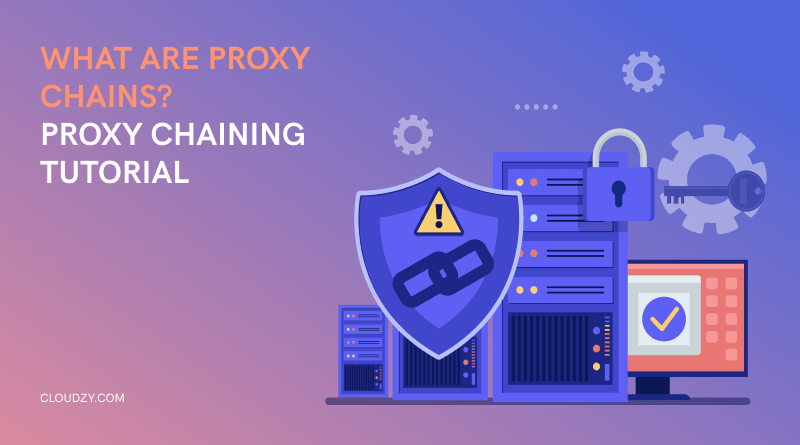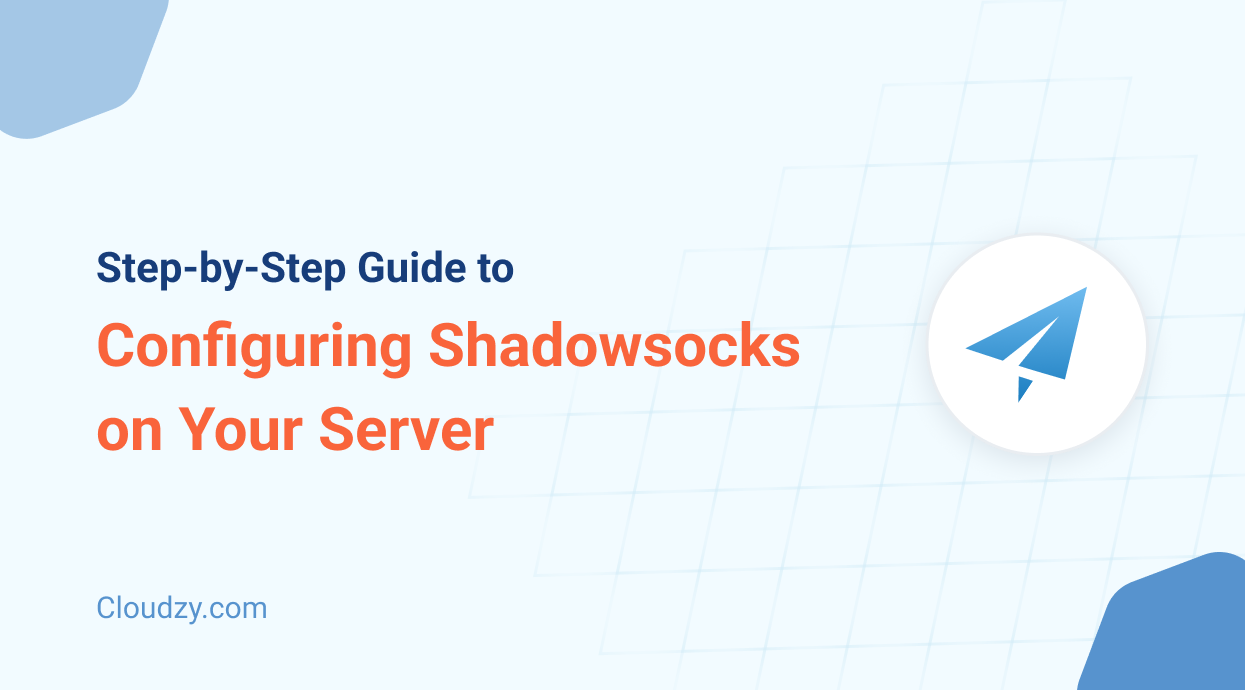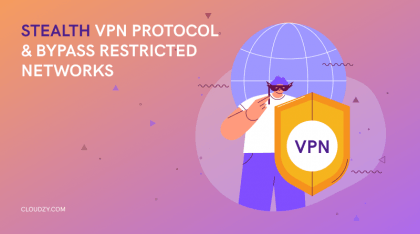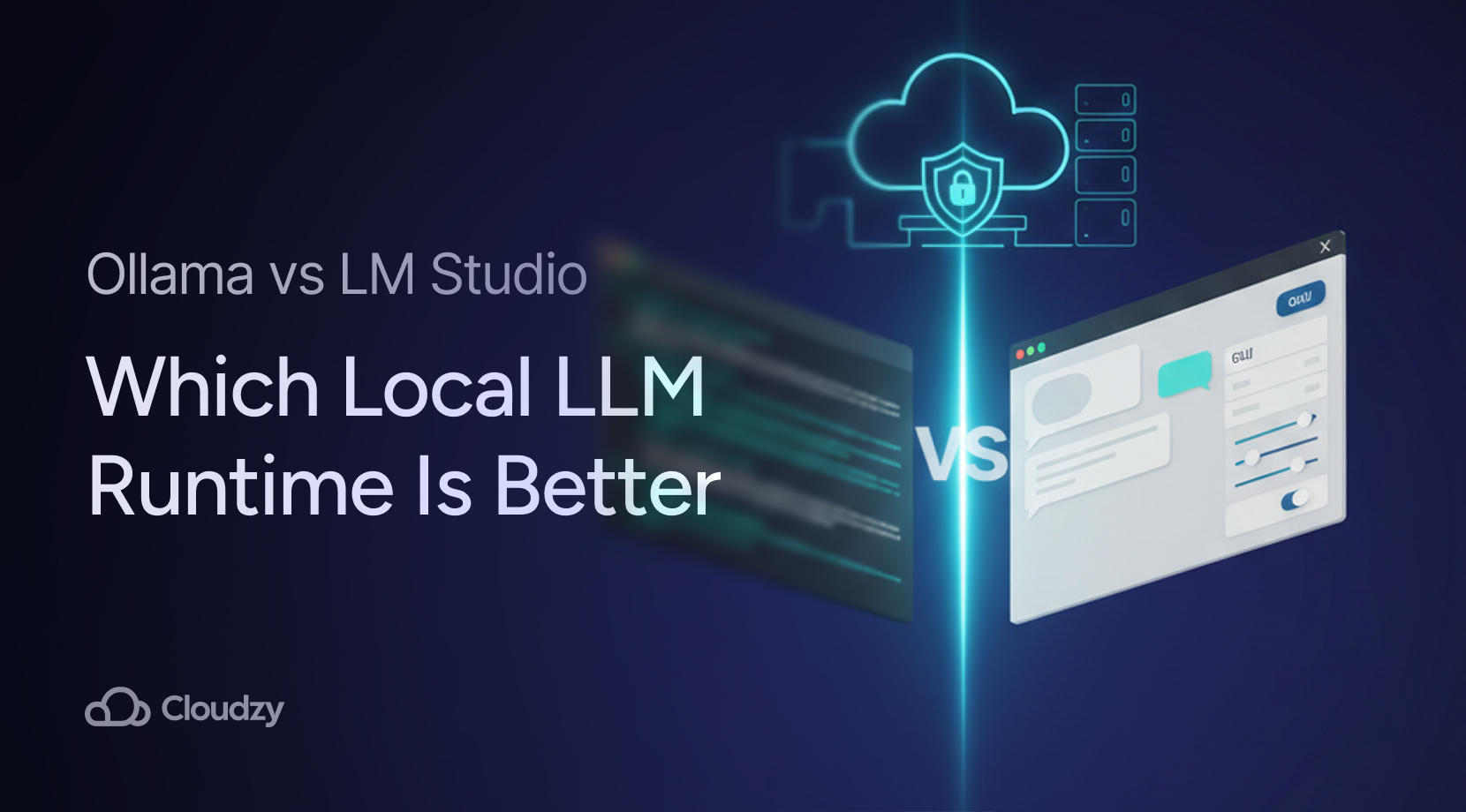People use different methods to secure their online privacy. While VPNs are the most popular option and tool to do so these days, they are not the only option. Before today’s polished, ready-to-go market options were so readily available, proxies were also one of the main ways that people used to ensure online privacy and security. In fact, it is noteworthy to know that a lot of techs that are put together as part of a more outstanding general category of “VPN” today are actually proxies. An excellent example of this is the so-called “Shadowsocks VPN,” which, in fact, is a proxy.
As time went by, both VPNs and proxies have become the target of cyber attacks themselves. So, both technologies have gone to further lengths to come up with new ideas and solutions in order to fix these issues. While in the VPN world, we have solutions like site-to-site VPNs, proxies have come up with newer solutions such as reverse proxy and, of course, the subject of today’s post, the proxy chain.
But what exactly is a proxy? How is proxy chaining done, and what are its main pros and cons? Stay with me to get the answer to all of these questions, as well as a quick guide on how to establish your own proxy chain!
What is a Proxy?
Most people either have a vague definition of a proxy or otherwise conflate its definition to overlap with other definitions like a VPN. A proxy is essentially made up of a server that acts as an intermediary force or a “gateway” between you and the internet connection. So when you are connected to a proxy server, you are essentially operating a three-way connection that is made up of your computer, the proxy server, and the destination you are navigating to. Let’s say there is a website that has limited your access to its domain. How exactly would a proxy help you?
When you are connected to a proxy server and try to reach a website, your data packets are initially sent to the proxy server instead of the destination; then, this server will act on your behalf and will send the data over. When the response comes back from the blocked domain, it also returns to the proxy server, which will then replicate it for you. The main difference from a VPN here is in the fact that a VPN allows you to fully assume their server and use it as if it’s your own, whereas proxies are more like middlemen.
What is a Proxy Chain, and Why Do We Need It?
Proxy chaining is a more elaborate process that involves using a proxy server to proxy into another server and doing this multiple times in order to create enough masking and packet processing and request layers to ensure your security. A proxy chain helps people stay secure on the web by layering the connection and making it impossible for hackers to access users’ data. Remember when I said when you use a proxy, it’s like a three-way internet connection with the proxy as the middleman? Well, a chained proxy is the exact same thing, with the notable difference that we now have a number of servers in between as opposed to a single one.
As the number of these intermediary servers increases, it becomes increasingly complex for filthy hands to track and threaten your data. Let’s say you do not want to be tracked online; naturally, cracking and tracking a single proxy server is much easier than five or six. But even with server proxy servers chained, you will not be entirely secure, and a skilled enough hacker can track you, so keep that in mind.
Advantages and Disadvantages of Proxy Chaining
Using a proxy chain has its own set of advantages and disadvantages you need to consider before deciding to go on and create a multi-layered proxy chaining operation of your own. Here are three key advantages and three disadvantages of proxy chaining. I’ll start with the advantages and then work my way to the disadvantages.
Proxy Chaining Advantages
Speed
As the number of proxy servers increases, so does the operational capacity of each server to process the packets and send them back to the user, coupled with a more efficient caching process that happens at the moment; proxy chains are a speedy method of securing your online data.
Security
As mentioned earlier, the higher the number of intermediary proxy servers, the harder you will be to track and the easier it will be to stay secure on the web. Each proxy server in a proxy chain is a security mask for the server preceding it, couple this with an encryption protocol, and it will be tough to track you down.
Efficient Caching
Cache memory is used to store the critical access data of recently visited domains. This stored data is then used to facilitate quick access and also to remember user preferences on a website. A higher number of proxies are better at caching, and therefore, you get to access cached websites faster and more efficiently.
Proxy Chaining Disadvantages
Maintenance
Managing a large number of dependable servers as part of a single connection operation will take a lot of work. You will be personally responsible for managing all the servers and making sure everything runs smoothly, and sometimes, this can be too much for one person.
High Dependability
As a single one of your proxy servers stops working, so does the entire proxy chain operation. Therefore ,proxy chaining is highly dependent on every single server, and should one of them go out; you need to find a replacement.
Potential Costs
The more complex your proxy chain is, the more servers you are going to need. The more servers you use, the more potential costs of bandwidth and server maintenance will be. If you have enough hardware lying around, you can manage some of them, but especially if you are going to use foreign servers as proxy servers, then the costs of these servers begin to pile up.
What is IPtables?
Users primarily use a Linux environment to use and operate servers. This is primarily due to the fact that Linux distros are designed for web development and other coding endeavors. IPtables is a program designed for Linux environments that enables us to set up a host of different networking rules, such as firewalling and proxy chains.
 Trusted for Stability
Trusted for Stability
Go for a Cloudzy Debian VPS and get a reliable, high-performance server with a super-stabel operating system optimized for functionality.
Get your Debain VPSProxy Chaining Using IPtables: A Short Guide
In this section, I will teach you how to use IPtables to forward packets through different servers and create a proxy chain.
Prerequisites
Make sure you have an original proxy server in place, then check that your IPtables version has yet to have any rules in place for pre-routing and post-routing sections.
Step 1: Enable IP Forwarding
Enter the following commands in order to enable IP forwarding, which will serve as the primary tool of our chaining operation:
echo "1" > /proc/sys/net/ipv4/ip_forward
Now, enter this command to add a rule that allows you to forward packets from the IP address of your VPS to 2.2.2.2 (example destination), using port 1111:
# iptables -t nat -A PREROUTING -p tcp --dport 1111 -j DNAT --to-destination 2.2.2.2:1111
Finally, enter this command to enable the masquerade:
iptables -t nat -A POSTROUTING -j MASQUERADE
Step 2: Enable Specific Network Traffic Forwarding (Optional)
If you want to direct data from a specific source to another host, enter the following command:
# iptables -t nat -A PREROUTING -s 192.168.1.1 -p tcp --dport 1111 -j DNAT --to-destination 2.2.2.2:1111
And if you want to perform chaining from a whole network to another than put in this command:
# iptables -t nat -A PREROUTING -s 192.168.1.0/24 -p tcp --dport 1111 -j DNAT --to-destination 2.2.2.2:1111
Step 3: Repeat the Process as Needed
This is all you need to do to chain one server to another to create a chained proxy. Repeat this process by changing the variables to match your additional servers to keep adding servers to your proxy chain.
Proxy Chain vs VPN: Which One is for You?
The proxy chain vs VPN debate is always a topic of conversation in security. Both operations are really good at private web browsing and changing your IP address. However, a VPN is more readily accessible and has less maintenance than a chained proxy. It helps you prevent your ISP’s spying and provides better overall protection through encryption. So, VPN is a more suitable overall choice with better cost efficiency.
There is a set of niche use cases that can make an outstanding choice in a user’s preference for a proxy chain. For starters, your privacy is better protected using a proxy chain. If privacy and security are your number one priority, then without a doubt a proxy chain is way more efficient than a VPN.
Lastly, a proxy chaining option can easily be used along several other instances at the same time, allowing you to switch and alter your server as the need dictates. This is usually done by extensions like Omega Switch. This option is useful for maintaining security by rapidly changing your proxy server, and is not possible with a VPN.
Use a VPS for Proxy Chaining
A VPS, Virtual Private Server, is a great solution for hosting VPN servers. A bonus fact is that it is also a suitable environment for proxy chaining. At Cloudzy, we offer highly customizable Linux servers that will help you establish a reliable and easy-to-use proxy chain for cheap.
Get yourself an economy or premium Linux VPS for hosting your website or remote desktop, at the cheapest price out there. VPS Running on Linux KVM for increased efficiency and working on powerful hardware with NVMe SSD storage for increased speed.
Linux VPS Hosting
Cloudzy’s Linux VPS servers start at just $4.95, but the package does a lot to more than justify its already cheap pricing. With Cloudzy’s Linux package, you get a server with qualified security and hardware requirements to act as a base for your proxy chain. You will also get a distro of your choice installed and configured. You can then choose one of our 15 global locations for optimal latency in order to establish your proxy chain.
The payment methods are diverse, including crypto, and there are different billing plans to accommodate you! If you have any questions, feel free to contact our 24/7 support system. Did I mention we have a 7-day money-back guarantee?
FAQ
Can A Proxy Chain be Used With Reverse Proxy?
Yes. A reverse proxy model is used for high standard security measures. You can also use this model to increase privacy and efficiency, similar to a standard proxy model.
Is Proxy Chain More Secure than VPN?
A proxy chain is better at making your IP address harder to track, while a VPN is better at encrypting your data and making it harder to track. However, you can use an encryption protocol as part of your proxy to also make this happen on your proxy chain.
How Many Proxies Can be Used in Proxy Chain?
There’s no limit to this; however, as the number of servers piles up, your speed may be affected. Overall, between 4 to 6 is the balanced and recommended number.
Will Proxy Chaining Make me Fully Anonymous?
No. Although proxy chaining does make you incredibly hard to track, a dedicated enough tracker can link one proxy after another to finally reach the logs where your actual IP address is stored.
Is Tor a Proxy Chain?
Yes. If you find the process of establishing a proxy chain operation from scratch to be too much, you can use Tor which is essentially a complicated and efficient pre-configured proxy chain.






